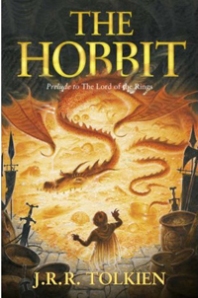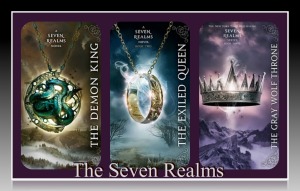Hello gentle reader,
When people ask me what genre my WIP The Last Queen is, I usually reply “Fantasy”. But if I wanted to be precise, I would say “Gritty Epic Fantasy”. Usually I’m not that precise, because then I would have to explain what Gritty Epic Fantasy is and I would end up talking for 15 minutes…
So today I thought I would explain what Gritty Epic Fantasy is, just this once.
Let’s break it down, shall we?
According to Wikipedia,
Fantasy is a genre of fiction that commonly uses magic and other supernatural phenomena as a primary element of plot, theme, or setting. Many works within the genre take place in imaginary worlds where magic is common.
Epic Fantasy is a subgenre of fantasy that is set in invented or parallel worlds.
NB: Because they share so many similarities, Epic Fantasy and High Fantasy are often used as synonyms. In this post, I will not differentiate the two subgenres, although I do think there are some differences that distinguish them.

J.R.R. Tolkien and C.S. Lewis are seen as the founders of the Epic Fantasy subgenre. Both authors invented imaginary worlds where their characters go on a great adventure. Their books focus on a good-versus-evil story and they were published during the first half of the 20th Century.
These books are all about escapism and heroism. In The Hobbit, Bilbo is on a quest to find a treasure guarded by a dragon. In The Lord of the Rings, Gandalf comes back from the dead. In The Chronicles of Narnia, children protect the fictional realm from evil and restore the throne to its rightful line. In these first Epic Fantasy books, there are talking animals, mythical beasts, sword fights, magic at every turn and people rarely die.

As many other readers out there, I love those stories. But Fantasy literature is about being a metaphor for the world we live in. And this is 2012. Since the 1950s, society has changed. Readers have changed. They’ve grown up watching people getting killed live on TV, hearing about horrific cases of child abuse and reading about human trafficking in the paper. When they read Fantasy books, they want to read about characters who face similar challenges to the ones they do.
And that’s what Gritty Epic Fantasy, also known as Realistic Fantasy, has to offer.

The trend was started by Glen Cook’s Black Company series in the mid 1980s. Then George R. R. Martin’s A Song of Ice and Fire series followed in the mid 1990s. And in the last ten years, this subgenre has grown exponentially, with authors such as Joe Abercrombie, Scott Lynch, K. J. Parker, Mark Lawrence, Steven Erikson and Brent Weeks.
In these books, the setting is still imaginary worlds. But instead of relying on complicated magic systems and weird creatures, these stories show us a world in shades of grey, where the characters are as flawed as we are, with the same emotions and reactions. These books touch on concepts which echo in our real world. Martin’s A Song of Ice and Fire tackles politics and relationships, Week’s Night Angel trilogy mentions child abuse and moral ambiguity.

In Gritty Epic Fantasy, there is no old grey-bearded wizard in robes to save the day. No quest to find a hidden treasure. No talking lions and children more powerful than kings. No brave knights who defy death. No world in black and white.
“There’s no guarantee that justice will win out or that a noble sacrifice will make any difference. But when it does, there’s something that still swells my chest. There’s magic in that…. It tells me that’s the way things are supposed to be.”
Brent Weeks, Beyond the Shadows
So maybe Gritty Epic Fantasy is not for you. But I find that this Fantasy subgenre is the one that echoes the most in me and this is what I write.

Some reading recommendations:
Black Company series (Glen Cook)
A Song of Ice and Fire series (George R.R. Martin)
Malazan Book of the Fallen series (Steven Erikson)
The Deed of Paksenarrion (Elizabeth Moon)
Prince of Nothing series (R. Scott Bakker)
Acacia (David Anthony Durham)
The Chronicles of Thomas Covenant (Stephen R. Donaldson)
First Law series (Joe Abercrombie)
The Lies of Locke Lamora (Scott Lynch)
The Night Angel trilogy (Brent Weeks)
Prince of Thorns (Mark Lawrence)
On the web:
Gritty fantasy
http://bestfantasybooks.com/gritty-fantasy.html
Painting With Grey: The Development and Popularity of “Gritty Fantasy”
http://fantasy-faction.com/2012/painting-with-grey-the-development-and-popularity-of-gritty-fantasy
Why the Turn Towards Gritty Realism In Epic Fantasy?
http://io9.com/5850891/why-the-turn-towards-gritty-realism-in-epic-fantasy-authors-sound-off
So what do you think? Do read or write Gritty Epic Fantasy? Why or why not? I’d love to hear your thoughts!









